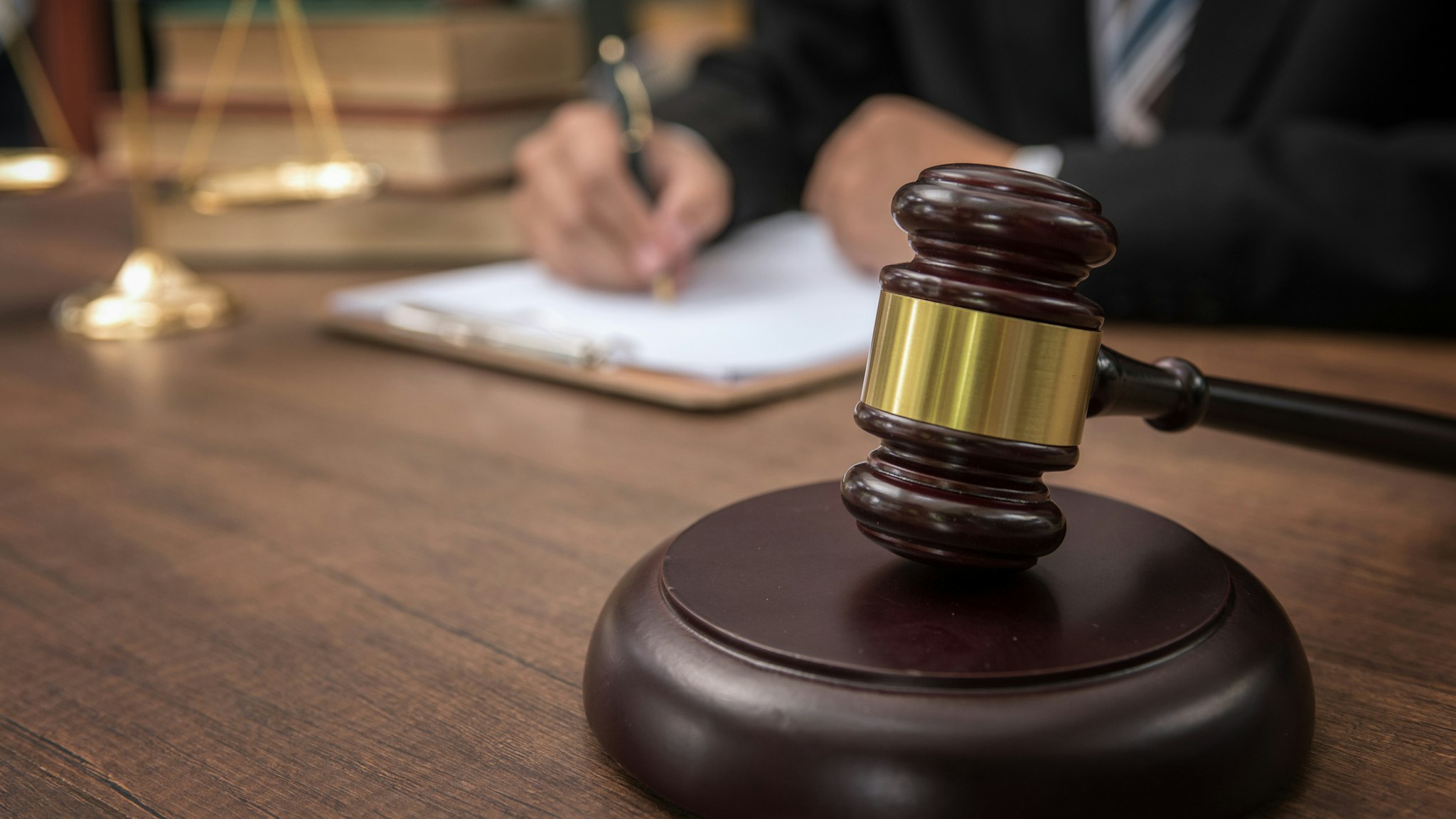A report from an organization dedicated to confirming President Donald Trump’s judicial nominees claims that the American Bar Association (ABA) violated three of its own policies in determining one of Trump’s nominees was “not qualified.”
The Article III Project (A3P), whose sole mission is to “confirm President Trump’s judicial nominees,” according to its own website, has produced a report in the wake of the ABA’s determination that Lawrence VanDyke was “not qualified” to serve on the U.S. Court of Appeals for the Ninth Circuit.
A3P claims that the ABA violated three of its own policies when making the determination about VanDyke. For starters, A3P says the second evaluator for the ABA’s report “never interviewed VanDyke and never even attempted to contact him.” ABA’s rule on the second evaluator states:
In any instance in which an evaluator apprises the Chair that the evaluator may recommend that a nominee be rated “Not Qualified,” the Chair will appoint a second evaluator to conduct an independent review of the nominee’s professional qualifications. … The second evaluator also conducts a new interview of the nominee in accordance with the procedures set forth in Section II.B. The second evaluator prepares an Informal Report setting forth the identity of each interviewee and a summary of the interviews conducted; a summary of the interview with the nominee; and, his or her own recommended rating for the nominee.
A source within the ABA said that time constraints prevented the second evaluator from interviewing the nominee, but that no rules were broken.
A3P next claims that the ABA’s primary reviewer, Marcia Davenport, should have recused herself because years earlier she had donated $150 to VanDyke’s opponent for the Montana Supreme Court. The ABA’s policy on a conflict of interest states:
No Committee member, including the Chair, shall participate in the evaluation or vote on the rating of a nominee in any instance in which such participation would give rise to the appearance of impropriety or would otherwise be incompatible with the purposes served and functions performed by the Committee, or where such member’s impartiality might reasonably be questioned.
The ABA source told The Daily Wire that ABA rules do not specifically address past political donations.
Finally, A3P claims the “ABA’s last-minute submission at 7 p.m. the night before a morning hearing was less than the required 24 hours or 48 hours before the hearing.” The ABA policy on this states:
The written statement is submitted to the Senate Judiciary Committee and to the nominee forty-eight (48) hours in advance of the nominee’s scheduled confirmation hearing, if the Committee has at least seven days’ advance notice of the hearing date and is assured that the statement will not be disseminated publicly until the date of the hearing. Otherwise, the Committee submits its written statement twenty-four (24) hours in advance of the nominee’s confirmation hearing.
The ABA source countered by saying the Senate Judiciary Committee sets the hearing date, not the ABA.
William C. Hubbard, who chairs the ABA Standing Committee on the Federal Judiciary, has released a statement defending the organization’s review of VanDyke and adding that the ABA “Standing Committee has conducted 264 ratings and issued Well Qualified or Qualified ratings to 255 — 97% — of those individuals.”
After VanDyke’s tearful rebuke of the ABA’s findings, National Review spoke with several people who had worked with him who were surprised by how quick the interviews with evaluators were.
The ABA’s letter regarding VanDyke anonymously quoted lawyers who “raised concerns about whether Mr. VanDyke would be fair to persons who are gay, lesbian, or otherwise part of the LGBTQ community. Mr. VanDyke would not say affirmatively that he would be fair to any litigant before him, notably members of the LGBTQ community.”
As National Review noted, it seemed improbable that a nominee would suggest in his own interview that he would not be a fair judge.
“I did not say that,” VanDyke said during his hearing when asked about his interview. “I do not believe that. It is a fundamental belief of mine that all people are created in the image of God and they should all be treated with dignity and respect.”
The ABA’s letter also said lawyers who worked with VanDyke branded him an “arrogant, lazy, an ideologue, and lacking in knowledge of the day-to-day practice including procedural rules. There was a theme that the nominee lacks humility, has an ‘entitlement’ temperament, does not have an open mind, and does not always have a commitment to being candid and truthful.”
Adam Laxalt, former Nevada attorney general, told National Review that this description “was polar opposite of the Lawrence VanDyke I worked with every day.” He also said his interview with ABA was very short and he was not asked “to comment on anyone else’s critiques of his character or professionalism.”
Law professor Brad Lingo also said he was interviewed by Davenport for “all of about 5 minutes” and said VanDyke was “one of the most earnest, humble, kind-hearted, and intellectally engaged lawyers” he knew.
American Enterprise Institute scholar Adam White, who has known VanDyke for decades, wrote in The Wall Street Journal that the ABA’s letter didn’t allow people to evaluate the bias or basis for the claims against VanDyke.

